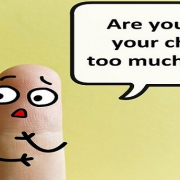6 Credit Card Blunders to Avoid This Holiday Season
 If you’ve just finished paying off your credit card debt from last year’s holiday shopping, you know that gift buying and paying with plastic can be a dangerous combination.
If you’ve just finished paying off your credit card debt from last year’s holiday shopping, you know that gift buying and paying with plastic can be a dangerous combination.
There are so many things that can go wrong (and right) that it would take forever to list every possible way you could spend yourself into the poor house. But whether you’re someone who always pays off credit card debt every month or you’re still working on paying off debt from Christmas 2009, be sure to at least avoid these credit card blunders.
1. Falling For Store Credit Card Deferred Interest Deals
Planning on buying someone a big, expensive gift, or maybe getting something monumental for yourself? Wondering if you should really splurge? That’s where deferred interest often lures consumers in. The store will promise that you won’t pay interest if you pay off the entire purchase by the end of the advertised period.
“Every holiday season, many store chains that sell large and expensive items like furniture or appliances start advertising deferred interest offers on their store-branded credit cards,” says Alex Gerard, CEO of CardsMix.com, a credit card comparison site. “These offers seem attractive, but they can be dangerous for your pocket if you have little discipline, like the majority of us.”
If you do have discipline, deferred interest deals can be swell. But it can be devastating if something goes wrong.
“If you don’t pay off the entire purchase and owe even a penny at the end of the advertised period, you will be charged the interest for the whole introductory period,” Gerard says.
2. Forgetting To Track Your Spending
“The holiday spirit blinds you to how much you’re really spending – until the bill comes due in January,” says Howard Dvorkin, a certified public accountant and chairman of Debt.com. “So my suggestion is to keep a running list of all your holiday expenses and post them on the refrigerator or somewhere prominent in your home. Once you hit a dollar figure you agreed to stay below – whether it’s $300 or $500 or even $1,000 – you and your family agrees to stop spending for the holidays. And if you still have some important gifts you really want to buy? “Everyone agrees to cut from somewhere else in the non-holiday part of the family budget.”
3. Carrying Revolving Debt From The Holidays
Consumers plan on spending an average of $1,159 on their holiday purchases this year, according to a just-released annual survey of 2,006 consumers (between Oct. 5-9, 2016) from the credit card Discover.
You know revolving debt is important to avoid, but you may want to do some math before you whip out your credit card, so you can see what you’re getting into. If you were to spend $1,159 on holiday gifts this year, and you had a credit card with an average interest of 15.18 percent (the national average at the time of this writing, according to CreditCards.com), and you planned to take six months to pay it off, you would pay $201.81 each month, spending a total of $1,210.86.
That arguably isn’t too expensive, spending $51.86 to float $1,159 in gifts in exchange for making your family or friends happy. But, of course, the question becomes – do you only carry that revolving debt for those six months? If you’re likely to buy more with your credit card and not pay it off right away, then suddenly that $201.81 payment is going to balloon and will likely become a weight around your neck. For all you know, next holiday season, maybe you’ll still be paying off that $1,159 in gifts.
4. Failing To Remember That The Holidays Are Ideal For Scam Artists
It’s smart to be something of a Grinch, assuming the world isn’t full of good people when you’re shopping at your computer or at the mall. From pickpockets to scammers with sophisticated equipment hoping to steal your credit card information when you shop at a public place with unprotected Wi-Fi, some people are out to get you.
In Calgary, Canada, for instance, police recently alerted the media that they’ve seen an escalation in text messages asking consumers if they want to be secret shoppers, and while that might sound plausible, no, these text messages aren’t legitimate. And throughout North America, there have been reports of fraudulent online stores and fake shopping apps being created, just waiting for people to find them and type in their credit card information.
5. Be Careful About Applying For Store Credit Cards
Like deferred interest deals, you’ll get a lot of sales employees asking if you’d like to apply for a store credit card. Unless you shop there all the time, and you have a great track record of repaying your credit card debt, your answer should be: no, thanks.
“It’s during the holidays that consumers, revolvers especially, are most susceptible to credit card debt,” says Kerri Moriarty, CEO of Cinch Financial, a website that makes customized suggestions to people on what types of financial products they should get.
She admits that it might seem “like a no-brainer,” to open a store credit card to get a 20 percent discount.
“When you do the math on what it takes to really benefit from the action as a year-round decision and not just a Christmas Eve one, you might be surprised to realize how little of a deal there is – and even more so if you’ll carry a balance on that card,” Moriarty says.
6. Forgetting About Rewards On Credit Cards – Or Focusing Too Much On Them
According to the aforementioned Discover survey, 46 percent of shoppers said their main reason for using credit cards for holiday shopping was to earn rewards. This is great, if you’re racking up rewards and paying off your cards every month. But every credit card and personal finance expert who ever lived will tell you to not overspend just to get a bunch of rewards. Drowning in credit card debt isn’t much of a reward.
Source: U.S. News & World Report


